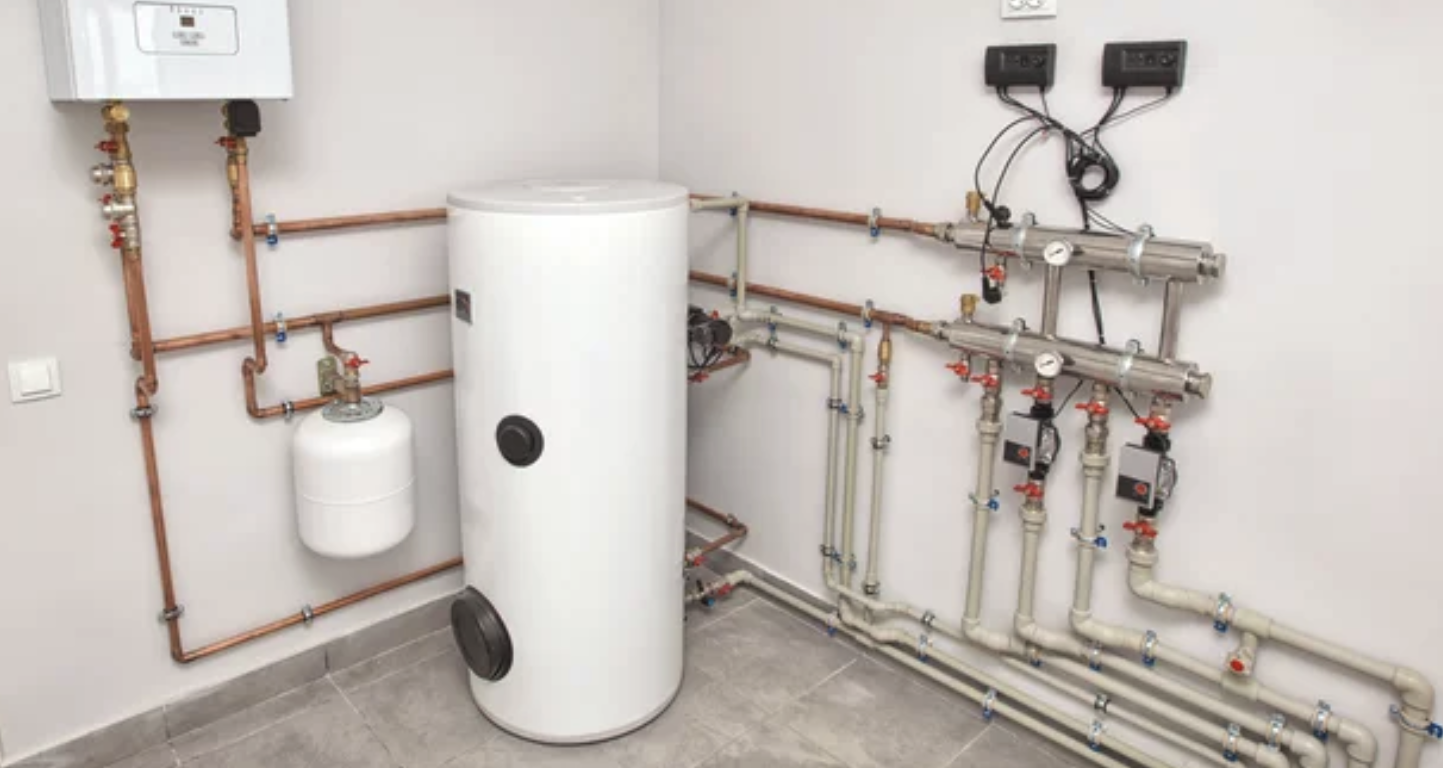Heat Pump vs. Boiler – What’s the Better Choice for You?
Level One Construction Ltd. always encourages their clients to upgrade to an efficient heat pump, and here’s why
Heat Pump vs Boiler - Which One is Better For You?
Deciding on the best heating system for your home is no small feat. According to a Government of Canada report, heating and cooling take up 63% of energy use in Canadian homes. Choosing wisely can help you cut down on those energy bills. This makes it super important to explore all your options before picking the right HVAC system, especially with modern solutions like heat pumps and boilers that are more energy-efficient.
We at Level One Construction often get questions from the homeowner about how heat pumps and heating boilers differ and which one is the superior choice. Let’s take a closer look at both.
What is a heat pump?
Heat pumps offer significant advantages by providing both heating and cooling solutions for residential spaces. They can distribute heat through various systems, including air ducts, radiators, or radiant floor heating. In the case of ductless mini-split heat pumps, a zoning system is employed to enhance efficiency.
An illustration showcasing the Heat Pump
Typically, heat pumps operate by utilizing electrical power and refrigerants, and there are three primary categories of heat pump systems currently available: air-to-air, water source, and geothermal (ground source).
How a heat pump operates?
In simple terms, a heat pump moves heat from one spot to another using electricity and refrigerant. Think of it like a refrigerator: it takes heat from the inside and pushes it out into the air.
The operation of a heat pump involves extracting heat from the air outside and transferring it to a refrigeration coolant. This coolant is compressed, resulting in a substantial rise in temperature. It is then delivered to the indoor unit, where a fan circulates air over it, warming your home to your preferred temperature.
Benefits of Heat Pump Technology:
Reduced operating expenses - Heat pumps transfer heat instead of producing it, resulting in high energy efficiency and potentially decreasing your electricity usage by up to 50%.
Minimal maintenance – It is advisable to conduct annual service inspections, with possible adjustments in both spring and fall.
Ductless systems eliminate the need for ductwork – This feature makes them ideal for compact areas.
Enhanced safety – Since they utilize electricity rather than combusting fuel for heat generation, they present fewer safety hazards compared to traditional systems.
Decreased carbon emissions – They contribute to lower carbon emissions and exhibit an effective energy conversion rate. Certain models, such as Bosch heat pumps, operate quietly – with noise levels reaching as low as 20 dBA.
During the Summer, air-to-air systems can transition to cooling mode.
Government incentives – The Government of British Columbia is encouraging the transition from old boilers to heat pumps by offering a financial incentive.
What is a boiler?
A boiler functions by heating water, which subsequently warms your residence, with the heat being delivered either as hot water or steam. Additionally, a boiler can serve the purpose of a water heater. Various fuel sources, including natural gas, propane, oil, electricity, or biomass pellets, can be utilized to operate the boiler.
An illustration showcasing the arrangement of a boiler installation.
This image showcases the Level One Construction crew actively removing a domestic water boiler in preparation for the installation of an energy-efficient Combi Boiler.
Now let’s talk about a Combi Boiler:
A boilers that provide heating for your home and hot water are known as combi boilers. Unlike traditional models, which store hot water in a tank or cylinder, combi boilers generate hot water as needed. This allows them to efficiently heat your living space and supply hot water to your appliances and faucets. The name "combi boiler" reflects its dual role in delivering both heating and hot water from one compact system.
An illustration showcasing a Combi Boiler
Advantages of a Combi Boiler:
The growing popularity of combination boilers can be attributed to their compact size, impressive efficiency of 95 percent, and ability to perform dual functions simultaneously. These boilers deliver hot water directly to your kitchen and bathroom, removing the necessity for a storage tank, while also supporting a primary hydronic loop for home heating through radiators or other heat-emitting devices. This feature makes them particularly suitable for smaller homes and spaces, as they do not require a cold-water feed tank or a hot water storage tank.
For heating and cooling your home, heat pumps and combi boilers are both strong contenders. They offer different features that may be more or less suitable depending on your needs and the characteristics of your home. We will compare these systems based on efficiency, installation, lifespan, maintenance, user experience, environmental impact, space requirements, and noise levels.






